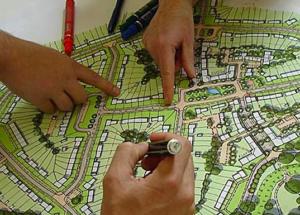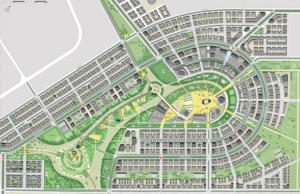Our capital city, San Jose, has grown and is now overflowing with its core of “josefinos” (San Jose residents) moving into the outer regions. Or overflowing into the other nearby cities and towns in order to integrate them into the urban landscape, which is now known simply as the Greater Metropolitan Area (GAM). It is not surprising to find many of the residential real estate projects are located in places once considered too far away, like San Lorenzo de Heredia, Oreamuno of Carthage, or La Guácima de Alajuela. These locations could now be considered the “suburbs” in our capital city.

We have evolved toward a model of urban planning similar to countries such as the US, with large residential conglomerates. Often located far from the work centers. Where to go to the cinema or the supermarket, we must travel several kilometers.

However, there is a current trend of urban planning and design known as the “new urbanism”. This new trend seeks to assist those who have the responsibility of shaping urban development (for example, local municipalities) so that cities can realign themselves with the traditional model of integrated communities. This current trend is dominated by the public spaces and center of town, which for most Costa Rican towns would be the square, the church, the park, school, or soccer field. This allows for the ease of access for pedestrian traffic while enjoying the architecture. In addition, they facilitate a quality of life that allows for meeting places close to home, for example shopping areas that combine residential uses, leisure, etc.
In this type of environment, the new trend in development has been finding its way into urban type projects in terms of how they integrate different residential apartments, townhouses, etc. with trade and amenities such as cafeterias, mini-supers, cinemas, hotels, restaurants, and shops. Therefore it is necessary to promote a more user-friendly policy of urban planning and regulations for this type of “new urbanism”. It is seen as a way to promote a better quality of life, and greater enjoyment of the neighborhood itself. Reminiscent of the neighborhood style of which many still remember as the “barrio”.
Contact Us for more information on other real estate options and developments.

